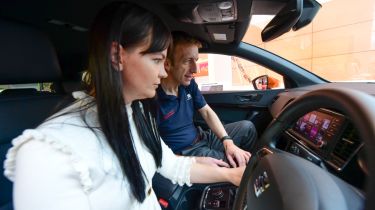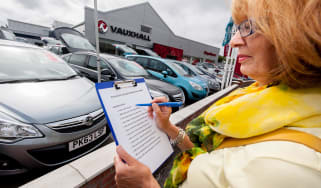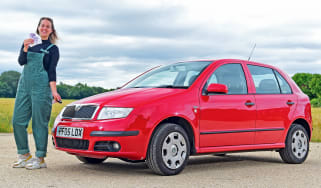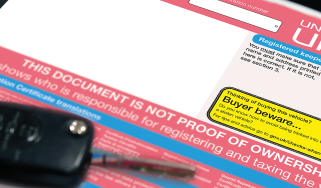When is the best time to buy a car?
When buying a new or used car, timing could be the difference between getting a good deal or not. We reveal the best times to buy, and why.

Knowing when to buy a new or used car can make all the difference. If you’re in a hurry – perhaps after an accident or your current car has broken down – your options might be limited. But if you have the luxury of time on your side, you can use it to your advantage and land a much better deal by choosing the right moment to make your purchase.
We’ve put together this detailed guide to help you pinpoint the best times to buy a car. Here, you’ll find insider tips for purchasing a new car, based on knowledge from industry experts, along with advice on buying used vehicles. We’ll also cover what to keep in mind depending on whether you’re strategically planning your purchase or being forced into it by necessity.
The best time to buy new
New car dealers are almost always set targets and given incentives to sell their cars quickly and efficiently. These incentives include various rewards for hitting sales numbers, such as bonuses for sales staff, financial perks and extra benefits for dealerships.
Contrary to popular belief, the biggest chance of getting a good deal on a new car is the month prior to the end of a quarter. The dealer quarters are tracked throughout the year, with, somewhat confusingly, each new quarter beginning on 1 March, 1 June, 1 September and 1 December. At the end of each quarter – the end of February, May, August and November – dealers are beginning to think about their targets for the next quarter. So they may be prepared to discount, but are more likely to move the delivery into the following month.
However, the month before – January, April, July and October – the heat will start to increase for dealers to maximise the sales numbers before the end of the current quarter. So if you visit just before their deadlines in these months, you might find them eager to close deals, offering excellent prices.
The end of the financial year in April is also a prime opportunity to look for a new car deal, as businesses are keen to maximise profits for the year. This makes Spring an ideal time for car shopping.
The day of the week you choose to visit the dealer might not directly affect the price, but if you want personalised service without delays, aim for the middle of the week. Dealers are busiest at weekends, meaning you could be left waiting around or get rushed service.
Depending on the manufacturer and model, a factory order could take anywhere from a few weeks to well over a year, due to ongoing semiconductor shortages and pandemic-related supply chain issues. Your dealer should advise on expected wait times if you opt for a custom factory build.
Dealers are also keen to clear out cars that are about to be replaced by newer versions. Checking Auto Express’ news pages can give you a heads-up on upcoming model launches. If you don’t mind driving the outgoing version, you could snap up a fantastic deal before the new one hits the market.
It’s not just the cars which have bonuses attached to them. Sales staff will also be keen to hit targets for finance packages, add-on insurance, service plans and extras such as paint or interior protection. You shouldn’t feel pressured into taking any of these, but if you are interested there is likely to be room to haggle if you get the timing right.
Finally, consider a pre-registered car. If the dealer cannot find enough buyers for new vehicles and looks set to miss their targets, they may register cars in their own name. These cars are stored until they’re three months old and then sold to the public at significant discounts.
Since the peaks for new car registrations are March and September, dealers will be under the most pressure to sell in these months and are likely to resort to pre-registering. As a result, many pre-registered models will hit the market three months later, in June and December, offering great value for buyers.
Car buying timing and the agency model
The agency model is being introduced by many car manufacturers in the UK and could mean there’s less room for securing a great deal on new cars. Under this model, manufacturers sell directly to customers instead of through dealerships, turning showrooms into places to view cars, learn more about them and test drive potential purchases. Prices, however, are fixed centrally by the manufacturer.
While some car makers believe this could shield buyers from production cost increases and remove the need for haggling, the no-haggling agency model means customers pay a set price. Purchasing may increasingly shift to virtual showrooms or online platforms, making timing your car buying less important in the future.
The best time to buy used
Timing is less important in the used car market than the new one, but dealers still have targets, and fluctuations in supply and demand can impact prices. With the right timing, you could save a few quid.
The greatest supply of used cars reflects peaks in new car sales, as buyers trade in their old vehicles and dealers move them on. This means March and September, with their new registration changes, are the busiest times for traders. However, it can take a little time for these cars to appear on used car forecourts, as they need to be processed and prepared for resale.
The weather also plays a big role in used car prices. For instance, the price of a convertible will rise in Spring when buyers are keen on a summer of open-top motoring, while 4x4s and SUVs are more desirable in winter when snow and floods are on people’s minds.
Weather can also have less obvious effects. Buyers avoid trudging around forecourts in the rain and cold, so prolonged bad weather can make dealers – and even private sellers – more open to negotiating a deal. Ironically, the same applies during spells of great weather. Sunny summer weekends are usually spent at the beach or hosting barbecues, leaving car dealerships eerily quiet.
Once you’ve done a deal, it might make sense to pick up a used car at the start of the month. The DVLA charges for a full month of road tax even if you’re only using the car for a couple of days, and tax isn’t transferable from the previous owner.
While this may not matter much for small cars with low or zero VED tax rates, bigger-engined models are more expensive to tax. Picking up a car at the start of the next month could save enough for an extra tank of fuel.
Frequently Asked Questions
Buy a car with Auto Express. Our nationwide dealer network has some fantastic cars on offer right now with new, used and leasing deals to choose from...
Find a car with the experts










